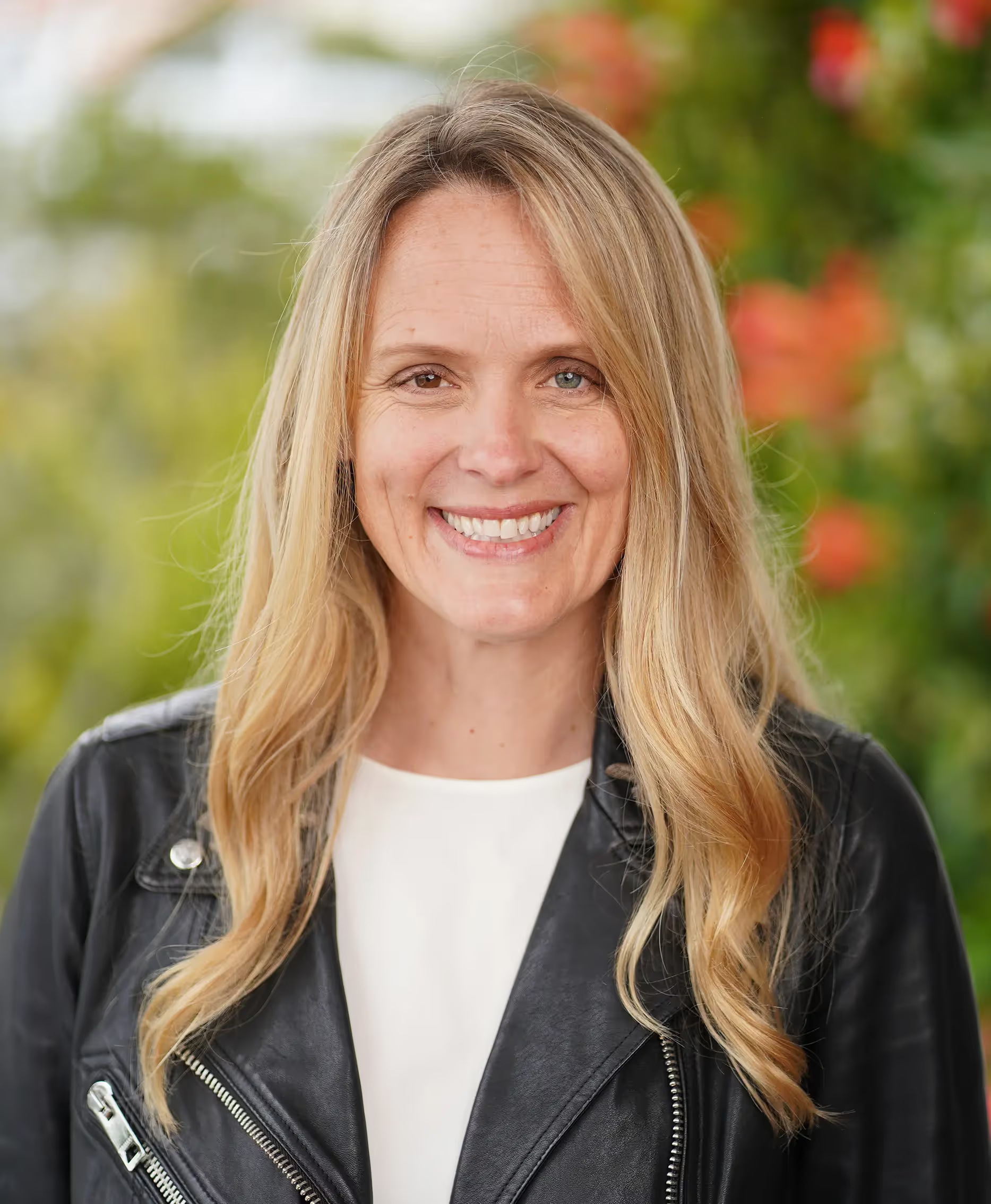Closing the purpose gap

Leading with Purpose, Part 3
As we discussed in the first two posts in this blog series, finding your personal purpose is an essential ingredient of finding meaning in what you do. Once you start looking at your profession through a purposeful perspective, you very well may start to see business opportunities that you did not see before. As one executive we worked with in this space said “Once I realized that what I wanted was to help people live healthy and fulfilling lives, I started to see just how much potential there was in the work we do, even if it wasn’t driving the short-term numbers. Knowing what I stood for and seeing the need in the world meant that I was prepared to back new market opportunities because I knew it was the right thing, as well as ultimately good business. I was no longer prepared to live with the conventional wisdom inside the organization. Now we have opened up a whole new segment that is one of our most promising. Being more purposeful unlocked my courage and my creativity in ways that not much else could.”
Today, most executives agree that purpose is important. According to EY and HBR’s “A Business Case for Purpose,” 89% of executives say that an organization with a shared purpose will have higher employee satisfaction, and 84% say that business transformation efforts will have greater success if integrated with purpose. Despite this, only 39% say that their purpose is clearly articulated and understood in the organization. But for Millennials and the majority of employees these days, the expectation of a clear purpose is now the norm. If you don’t have it, they notice right away.
So, what can you do about this organizational purpose gap as a leader? Once you’ve uncovered your own sense of purpose, there are two next steps that you can immediately apply:
- Reflect on the last time you talked to your team about purpose and what your purpose is. What motivates you the most? If it’s been more than a couple quarters (or longer) since you shared that, perhaps use an end of quarter celebration or a memo or some other upcoming communication to reflect. It could be along the lines of, “Many of you have asked me why I spend my time on X, why I’m still here, why I’ve spent so many years here…. So I just wanted to share what motivates me, what I’m passionate about, etc.” and welcome people to share for themselves what motivates them. It’s critical that you define it in your own words, and are completely authentic in it. Purpose is a double-edged sword – if it doesn’t feel authentic, it can create cynicism, but if it is genuine, it can be very inspiring.
- Create a series of senior team conversations where people prepare and reflect on some of the recent moments they’re most proud of, the moments when they’re happiest at work and with the team. By doing this, people will uncover what truly motivates them – and you’ll find out a number of things about your team. To get the conversation started, sometimes it’s helpful to share your personal purpose as well as a few different purposes that have come from your peers to allow people to warm up to some of their reflections.
The Pursuit of Organizational and Personal Purpose in Parallel
Bridging the purpose gap and finding a way to pursue both organizational and personal purpose in parallel is where the power of finding meaning at work can drive true impact. If we look for strategic opportunities that present themselves as we try to tackle the worlds big challenges, there are suddenly thousands of ways that businesses can make a lasting difference and set themselves apart. Those businesses who are in pursuit of finding their purposeful advantage are fertile breeding grounds for meaningful careers and the delivery on the aspirational dream of great work doing great things.
We see reason for hope here. But only by looking at the purpose question as a driver of organizational advantage as well as by focusing on finding our own personal ‘Ikigai’ are we likely to avoid the search for purpose becoming another well intended promise that never quite delivers.
Related content
Related content

Technology choices are often made under pressure - pressure to modernize, to respond to shifting client expectations, to demonstrate progress, or to keep pace with rapid advances in AI. In those moments, even experienced leadership teams can fall into familiar traps: over-estimating how differentiated a capability will remain, under-estimating the organizational cost of sustaining it, and committing earlier than the strategy or operating model can realistically support.
After decades of working with leaders through digital and technology-enabled transformations, I’ve seen these dynamics play out again and again. The issue is rarely the quality of the technology itself. It’s the timing of commitment, and how quickly an early decision hardens into something far harder to unwind than anyone intended.
What has changed in today’s AI-accelerated environment is not the nature of these traps, but the margin for error. It has narrowed dramatically.
For small and mid-sized organizations, the consequences are immediate. You don't have specialist teams running parallel experiments or long runways to course correct. A single bad platform decision can absorb scarce capital, distort operating models, and take years to unwind just as the market shifts again.
AI intensified this tension. It is wildly over-hyped as a silver bullet and quietly under-estimated as a structural disruptor. Both positions are dangerous. AI won’t magically fix broken processes or weak strategy, but it will change the economics of how work gets done and where value accrues.
When leaders ask how to approach digital platforms, AI adoption, or operating model design, four questions consistently matter more than the technology itself.
- What specific market problem does this solve, and what is it worth?
- Is this capability genuinely unique, or is it rapidly becoming commoditized?
- What is the true total cost - not just to build, but to run and evolve over time?
- What is the current pace of innovation for this niche?
For many leadership teams, answering these questions leads to the same strategic posture. Move quickly today while preserving options for tomorrow. Not as doctrine, but as a way of staying adaptive without mistaking early commitment for strategic clarity.
Why build versus buy is the wrong starting point
One of the most common traps organizations fall into is treating digital strategy as a series of isolated build-vs-buy decisions. That framing is too narrow, and it usually arrives too late.
A more powerful question is this. How do we preserve optionality as the landscape continues to evolve? Technology decisions often become a proxy for deeper organizational challenges. Following acquisitions or periods of rapid change, pressure frequently surfaces at the front line. Sales teams respond to client feedback. Delivery teams push for speed. Leaders look for visible progress.
In these moments, technology becomes the focal point for action. Not because it is the root problem, but because it is tangible.
The real risk emerges operationally. Poorly sequenced transitions, disruption to the core business, and value that proves smaller or shorter-lived than anticipated. Teams become locked into delivery paths that no longer make commercial sense, while underlying system assumptions remain unchanged.
The issue is rarely technical. It is temporal.
Optimizing for short-term optics, particularly client-facing signals of progress, often comes at the expense of longer-term adaptability. A cleaner interface over an ageing platform may buy temporary parity, but it can also delay the more important work of rethinking what is possible in the near and medium term.
Conservatism often shows up quietly here. Not as risk aversion, but as a preference for extending the familiar rather than exploring what could fundamentally change.
Licensing as a way to buy time and insight
In fast-moving areas such as AI orchestration, many organizations are choosing to license capability rather than build it internally. This is not because licensing is perfect. It rarely is. It introduces constraints and trade-offs. But it was fast. And more importantly, it acknowledged reality.
The pace of change in this space is such that what looks like a good architectural decision today may be actively unhelpful in twelve months. Licensing allowed us to operate right at the edge of what we actually understood at the time - without pretending we knew where the market would land six or twelve months later.
Licensing should not be seen as a lack of ambition. It is often a way of buying time, learning cheaply, and avoiding premature commitment. Building too early doesn’t make you visionary, often it just makes you rigid.
AI is neither a silver bullet nor a feature
Coaching is a useful microcosm of the broader AI debate.
Great AI coaching that is designed with intent and grounded in real coaching methodology can genuinely augment the experience and extend impact. The market is saturated with AI-enabled coaching tools and what is especially disappointing is that many are thin layers of prompts wrapped around a large language model. They are responsive, polite, and superficially impressive - and they largely miss the point.
Effective coaching isn’t about constant responsiveness. It’s about clarity. It’s about bringing experience, structure, credibility, and connection to moments where someone is stuck.
At the other extreme, coaches themselves are often deeply traditional. A heavy pen, a leather-bound notebook, and a Royal Copenhagen mug of coffee are far more likely to be sitting on the desk than the latest GPT or Gemini model.
That conservatism is understandable - coaching is built on trust, presence, and human connection - but it’s increasingly misaligned with how scale and impact are actually created.
The real opportunity for AI is not to replace human work with a chat interface. It is to codify what actually works. The decision points, frameworks, insights, and moments that drive behavior change. AI can then be used to augment and extend that value at scale.
A polished interface over generic capability is not enough. If AI does not strengthen the core value of the work, it is theatre, not transformation.
What this means for leaders
Across all of these examples, the same pattern shows up.
The hardest decisions are rarely about capability, they are about timing, alignment, and conviction.
Building from scratch only makes sense when you can clearly articulate:
- What you believe that the market does not
- Why that belief creates defensible value
- Why you’re willing to concentrate risk behind it
Clear vision scales extraordinarily well when it’s tightly held. The success of narrow, focused Silicon Valley start-ups is testament to that.
Larger organizations often carry a broader set of commitments. That complexity increases when depth of expertise is spread across functions, and even more so when sales teams have significant autonomy at the point of sale. Alignment becomes harder not because people are wrong, but because too many partial truths are competing at once.
In these environments, strategic clarity, not headcount or spend, creates advantage.
This is why many leadership teams choose to license early. Not because building is wrong, but because most organizations have not yet earned the right to build.

This article was originally publish on Rotman Management
IN OUR CONSULTING WORK with teams at all levels—especially senior leadership—my colleagues and I have noticed teams grappling with an insidious challenge: a lack of effective prioritization. When everything is labeled a priority, nothing truly is. Employees feel crushed under the weight of competing demands and the relentless urgency to deliver on multiple fronts. Requests for prioritization stem from both a lack of focused direction and the challenge of efficiently fulfilling an overwhelming volume of work. Over time, this creates a toxic cycle of burnout, inefficiency and dissatisfaction.
The instinctive response to this issue is to streamline, reduce the number of initiatives, and focus. While this is a step in the right direction, it doesn’t fully address the problem. Prioritization isn’t just about whittling down a to-do list or ranking activities by importance and urgency on an Eisenhower Decision Matrix; it also requires reshaping how we approach work more productively.
In our work, we have found that three critical factors lie at the heart of solving prioritization challenges: tasks, tracking and trust. Addressing these dimensions holistically can start to address the root causes of feeling overwhelmed and lay the foundation for sustainable productivity. Let’s take a closer look at each.

You’re buckling in for an overseas flight in a brand-new Boeing 777. The pilot comes on the PA: “Ah, ladies and gentlemen, our flight time today will be six and a half hours at a cruising altitude of 33,000 feet. And I should mention that this is the first time I have ever flown a 777. Wish me luck.”
Before setting foot in the real world, pilots, military personnel and disaster response teams use intense simulations to learn how to respond to high-intensity challenges.Why should we place corporate leaders and their teams in situations without first giving them a chance to try things out? The risks are huge — new strategy investments can run into the hundreds of millions of dollars. BTS offers a better way to turn strategy into action: customized business simulations.
‘Now I Know What it’s Like to be CEO’
A customized business simulation of your enterprise, business unit or process, using real-world competitive dynamics, places leaders in a context where they step out of their normal day-to-day roles and gain exposure to the big picture. Participants make decisions in a risk-free environment, allowing them to experience critical interdependencies, execution best practices and the levers they can use to optimize their company’s key performance indicators. It takes the concept of a strategy and makes it personal, giving each individual the chance to see the direct impacts of their actions and the role they play in strategy execution.
Leading corporations are increasingly turning to business simulations to help build strategic alignment and execution capability when faced with the following business challenges:
- Key performance objective and new strategy implementation.
- Accelerating strategy execution and innovation.
- Improving business acumen and financial decision making.
- Transforming sales programs into business results accelerators.
- Leadership development focused on front-line execution.
- Implementing culture change as tied to strategy alignment.
- Modeling complex value chains for collaborative cost elimination.
- Merger integration.
Within minutes of being placed in a business simulation, users are grappling with issues and decisions that they must make — now. A year gets compressed into a day or less. Competition among teams spurs engagement, invention and discovery.
The Business Simulation Continuum: Customize to Fit Your Needs
Simulations have a broad range of applications, from building deep strategic alignment to developing execution capability. The more customized the simulation, the more experience participants can bring back to the job in execution and results. Think about it: why design a learning experience around generic competency models or broad definitions of success when the point is to improve within your business context? When you instead simulate what “great” looks like for your organization, you exponentially increase the efficacy of your program.
10 Elements of Highly Effective Business Simulations
With 30 years of experience building and implementing highly customized simulations for Fortune 500 companies, BTS has developed the 10 critical elements of an effective business simulation:
- Highly realistic with points of realism targeted to drive experiential learning.
- Dynamically competitive with decisions and results impacted by peers’ decisions in an intense, yet fun, environment.
- Illustrative, not prescriptive or deterministic, with a focus on new ways of thinking.
- Catalyzes discussion of critical issues with learning coming from discussion within teams and among individuals.
- Business-relevant feedback, a mechanism to relate the simulation experience directly back to the company’s business and key strategic priorities.
- Delivered with excellence : High levels of quality and inclusion of such design elements as group discussion, humor, coaching and competition that make the experience highly interactive, intriguing, emotional, fun, and satisfying.
- User driven: Progress through the business simulation experience is controlled by participants and accommodates a variety of learning and work styles.
- Designed for a specific target audience, level and business need.
- Outcome focused , so that changes in mindset lead to concrete actions.
- Enables and builds community: Interpersonal networks are created and extended through chat rooms, threaded discussions and issue-focused e-mail groups; participants support and share with peers.
Better Results, Faster
Well-designed business simulations are proven to significantly accelerate the time to value of corporate initiatives. A new strategy can be delivered to a global workforce and execution capability can be developed quickly, consistently and cost-effectively. It’s made personal, so that back on the job, participants own the new strategy and share their enthusiasm and commitment. This in turn yields tangible results; according to a research report conducted by the Economist Intelligence Unit and sponsored by BTS, titled “Mindsets: Gaining Buy-In to Strategy,” the majority of firms struggle to achieve buy-in to strategy, but those that personalize strategy throughout their organization significantly outperform their peers in terms of profitability, revenue growth and market share.
Business Simulations: Even More Powerful in Combination
Comprehensive deployment of business simulation and experiential learning programs combines live and online experiences. The deepest alignment, mindset shift and capability building takes place over time through a series of well-designed activities. Maximize impact by linking engagement and skill building to organizational objectives and by involving leadership throughout the process.
Putting Business Simulations to Work
Simulations drive strategic alignment, sales force transformation, and business acumen, financial acumen and leadership development, among other areas. A successful experiential learning program cements strategic alignment and builds execution capability across the entire organization, turning strategy into action. Results can be measured in team effectiveness, company alignment, revenue growth and share price.
Learn more about business simulations
Learn how BTS Business Simulations can help with your initiatives.
Fill out the form below to have a BTS representative contact you.


